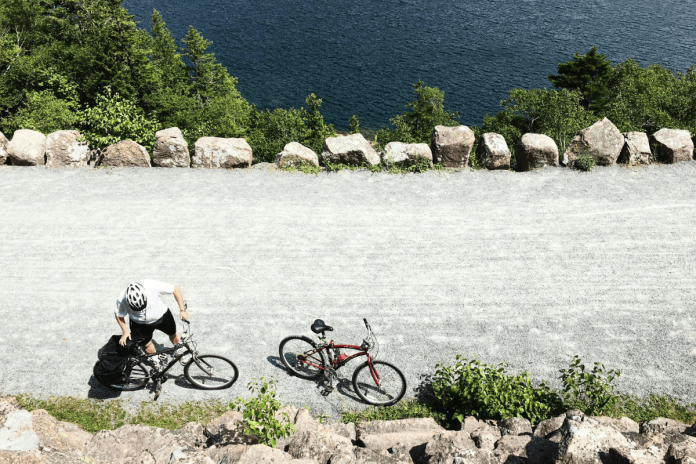Recreation and parks groups across BC work and play on the traditional territories of one or more First Nations. Recently, The Outdoor Recreation Council of B.C.’s (ORCBC) hosted a webinar entitled, Reconciliation and Recreation: Indigenous Perspectives, where they invited representatives from two First Nations to share insight into positive and productive partnerships between recreation departments and First Nations.
The webinar provides valuable information to help initiate and support respectful collaboration. These learnings extend beyond recreation and include best practices to honour and celebrate the rights of Indigenous Peoples and their territories.
Below is an excerpt from ORCBC’s blog, Future of Recreation: Recreation and Reconciliation, that draws from the webinar.
There is no word in Ucwalmícwts, the Líl’wat Nation’s language, for recreation.
“We never played outside. We survived outside,” said Roxanne Joe, the lands and resources project coordinator for the Líl’wat First Nation, whose territory surrounds the town of Pemberton. “I think that’s where the disconnection comes from with the recreation community.”
Joe was speaking during the Outdoor Recreation Council of B.C.’s January webinar titled Reconciliation and recreation: Indigenous perspectives. She and Saya Masso, the land and resource manager for the Tla-o-qui-aht First Nation, discussed how recreation groups can work with First Nations and be their allies in reconciliation. The main message: it’s a relationship-building process that begins and ends with listening.
“We want to be approached with respect and with consent,” Joe said. “We are tired of being trumped by privilege and being an afterthought when it comes to activities involving our territories.”

“For recreation groups that want to build infrastructure, hold events or seek permission to travel on their territory, the best first step is to reach out to the Nation directly. And before going to the regional or provincial government. Governments are increasingly encouraging this order of approach, and it shows a respect for the First Nation’s enshrined rights,” Joe said.
“That way, you are developing a good relationship right away and telling us what your plan is within our territory,” she said. “Down the line, it can speed up the process.”
“For less intrusive requests, like an event or race, someone like Joe or Masso may provide informal consultation or approval. For more involved requests, the heads up means the Nation is ready when the formal proposal lands on their desk.
But recreation groups also need to be patient, Joe said. Many Nations are managing record volumes of requests and referrals. In addition, there can be more going on behind the scenes than proponents realize. Capacity issues, specialist availability, cultural protocols or even extreme weather can slow things down.
For engagement to be meaningful, continued communication and waiting is the right thing to do,” she said. “It takes as long as it takes.”
Read the full blog on ORCBC’s website.
Watch the full webinar here:
About the Author
 The Outdoor Recreation Council of BC is a charitable society with more than 90 organizational members spanning the entire spectrum of outdoor recreation user groups, including paddlers, hikers, mountain bikers, off-road motorcyclists, equestrians, snowmobilers, quad riders, and anglers. We voice the interests and concerns of the organized recreation sector to government, advocate for access and funding, and build capacity within the sector.
The Outdoor Recreation Council of BC is a charitable society with more than 90 organizational members spanning the entire spectrum of outdoor recreation user groups, including paddlers, hikers, mountain bikers, off-road motorcyclists, equestrians, snowmobilers, quad riders, and anglers. We voice the interests and concerns of the organized recreation sector to government, advocate for access and funding, and build capacity within the sector.
